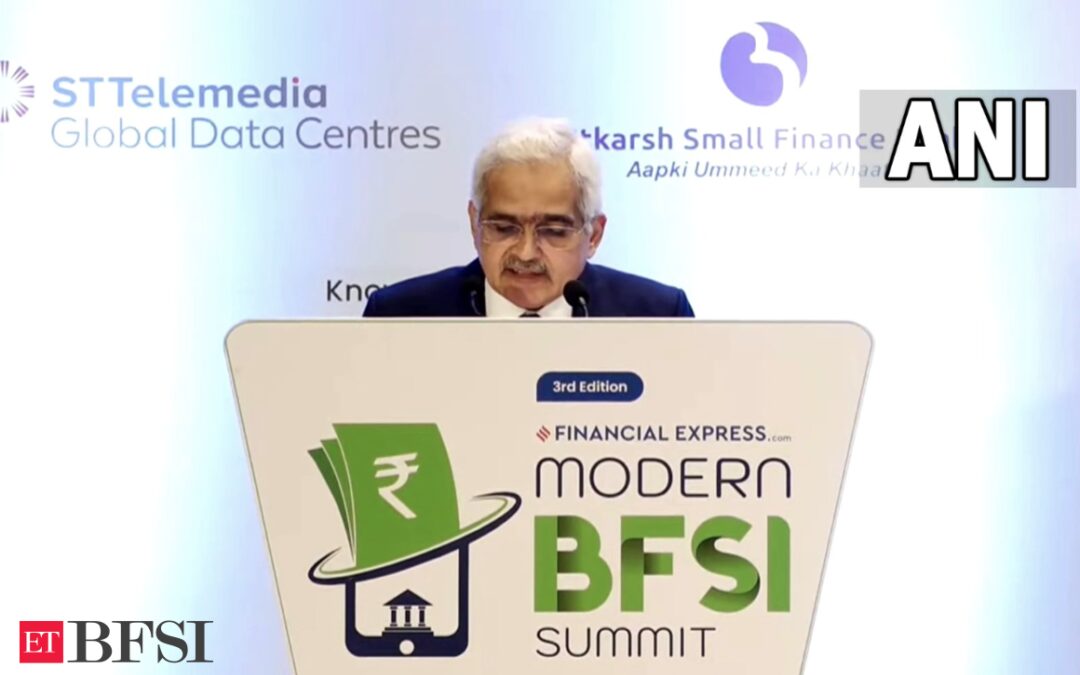Reserve Bank of India (RBI) Governor Shaktikanta Das on Friday said that the rise in share of the retail portfolio within overall bank credit is a recent system-wide trend.
While addressing the Financial Express Modern BFSI Summit in Mumbai, the Governor called for enhanced vigilance regarding delinquency levels and leverage in small-ticket consumer loans.
Banks need to be cautious to avoid excessive risk build-up in their retail credit portfolios, he said.
The financial landscape in India is undergoing a structural transformation, driven by factors like innovations in technology, financial deepening, and changing savings and investment patterns, Governor Das noted.
He urged banks to carefully assess the impact of these changes on their business models, resilience, and sustainability. Embracing technology and innovation is essential, but banks must also manage the associated risks effectively.
Managing Loan and Deposit Growth
“There will always be some gap between the two, but credit growth should not run ahead of deposit growth by miles,” emphasised Governor Das.
He pointed out the structural liquidity issues that could arise if this imbalance persists, particularly given the regulatory requirements such as the Cash Reserve Ratio (CRR), Statutory Liquidity Ratio (SLR), and Liquidity Coverage Ratio (LCR).
“It is imperative that our banks put in place prudent liquidity management measures proactively,” Das warned.
The perils of incorrect valuation of liquid assets, which can give a false sense of short-term liquidity resiliency.
The recent banking crises have reinstated the need for robust liquidity and interest rate risk management.
Ethical conduct and fair practices
Governor Das also stressed the importance of fair conduct and practices.
“We still come across instances of regulatory entities resorting to high-handed recovery practices; framing non-transparent loan contracts with inadequate disclosures of important terms or non-disclosure of charges; levying excessive interest rates, especially in microfinance loans,” he remarked.
Such practices undermine consumer confidence and can lead to stringent regulatory actions.











